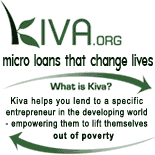LinkBlog
Cannabis, the mind and society: the hash realities (PDF - free reg. req'd)
The Role of Cognitive and Behavioral Therapies in the Treatment of Insomnia
Have you outsourced your brain?
Adult offspring of mothers with PTSD have low stress hormone levels
A small study suggests that adults whose parents are Holocaust survivors with post-traumatic stress disorder (PTSD) appear to have lower average levels of the stress hormone cortisol than the adult offspring of parents without PTSD, according to a report in the September issue of Archives of General Psychiatry, one of the JAMA/Archives journals.
Biological differences seen in individuals with PTSD, including low cortisol levels, could either result from exposure to a traumatic event or could be present before such an event and predispose patients to the condition, according to background information in the article. "Once identified, such risk factors may prove to be useful as predictors of who will develop PTSD after exposure to trauma, or they may even identify potential new targets for prophylaxis [preventive therapy] and treatment," the authors write.
Rachel Yehuda, Ph.D., of the Mount Sinai School of Medicine and James J. Peters Veterans Affairs Medical Center, Bronx, New York, and colleagues studied 33 individuals whose parents had survived the Holocaust. These study participants were further divided into groups based on whether at least one parent met criteria for PTSD according to a questionnaire completed by the offspring. Twenty-three of the offspring had parents with PTSD, and 10 had parents without PTSD. The researchers measured the participants' blood cortisol levels every 30 minutes for a 24-hour period, then compared them with the levels of 16 individuals whose parents were not Holocaust survivors. None of the participants had PTSD at the time of the study.
Individuals whose parents had PTSD displayed lower average cortisol levels over the 24-hour period than did those whose parents did not have PTSD or were not exposed to traumatic events. This decrease seemed specifically related to having a mother with PTSD.
"Offspring with parental PTSD also demonstrated changes in some chronobiological parameters previously identified as altered in trauma survivors with PTSD despite that no subject had PTSD at assessment," the authors write. "However, the overall pattern of alterations observed in the offspring with parental PTSD did not follow that reported for PTSD, allowing differentiation between parameters associated with risk vs. those associated with PTSD pathogenesis [development]."
"Although the implications for PTSD prophylaxis cannot be specified from these results, they have clear clinical applications, including assessment of parental PTSD in patients with PTSD and evaluation of stressful events during pregnancy and early childhood," the authors conclude. "Indeed, the data suggest that examination of epigenetic [environmental or other effect that does not change DNA] or in utero phenomena should be added to the search for genetic polymorphisms that may underlie individual differences that increase vulnerability to this disorder."
The study was funded by a grant from the National Institute of Mental Health and in part by a grant for the Mount Sinai General Clinical Research Center from the National Institutes of Health.
Yehuda R, Teicher MH, Seckl JR, et al. Parental Posttraumatic Stress Disorder as a Vulnerability Factor for Low Cortisol Trait in Offspring of Holocaust Survivors Arch Gen Psychiatry 2007;64:1040-48. [Abstract]
















